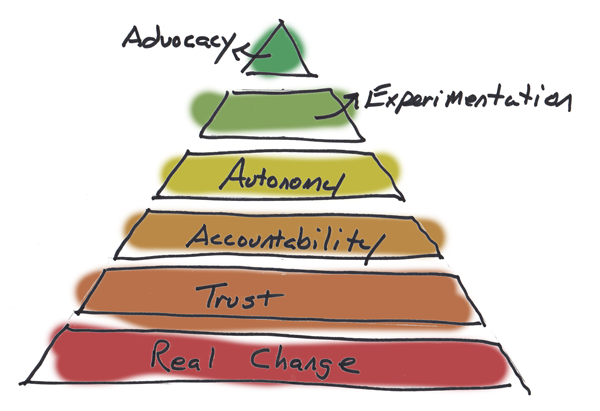Writings
Cultivating self-managing teams
- Facilitating real change
- Foundation of trust
- Collective accountability and quality
- Teaching autonomy
- The power of experimentation
- Making change permanent with advocacy

 RSS Feed
RSS Feed